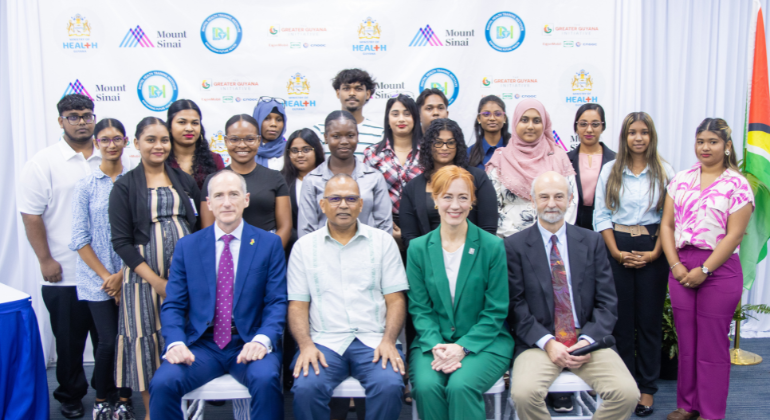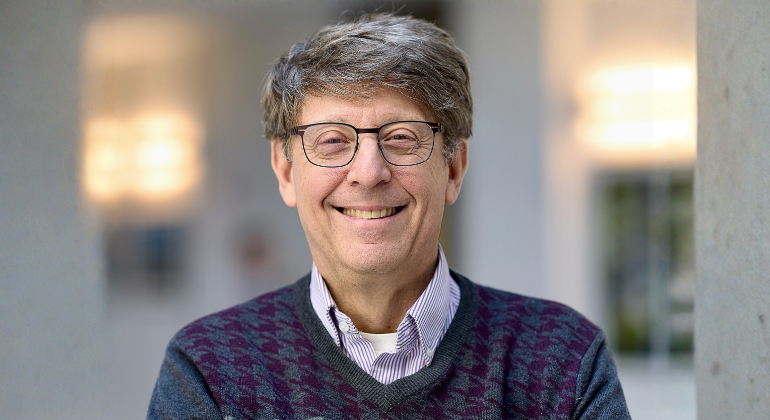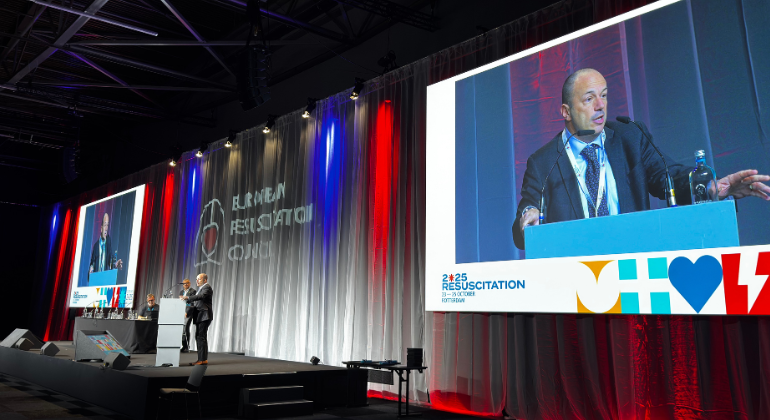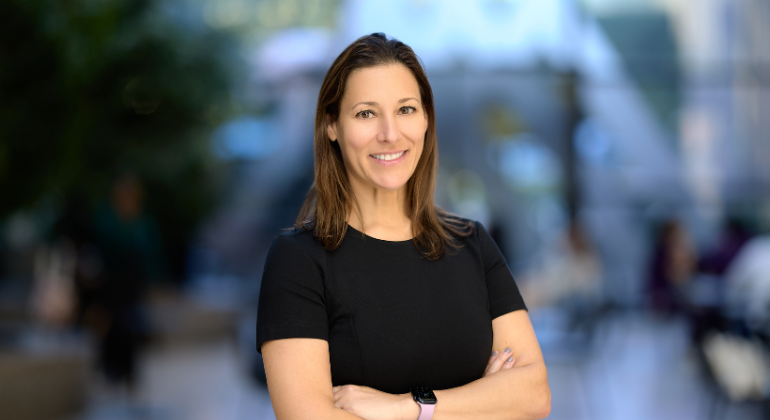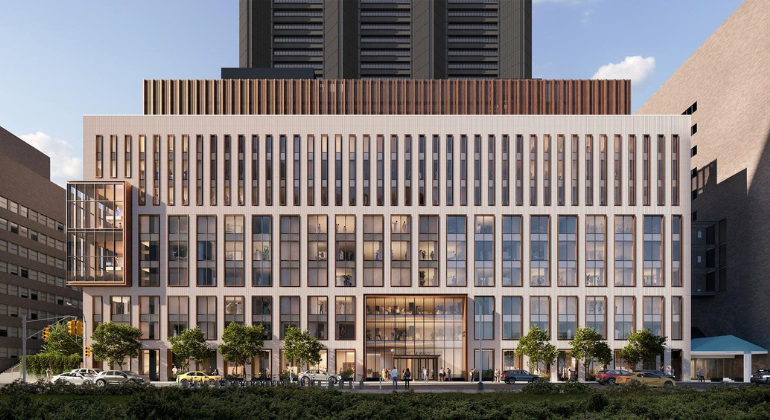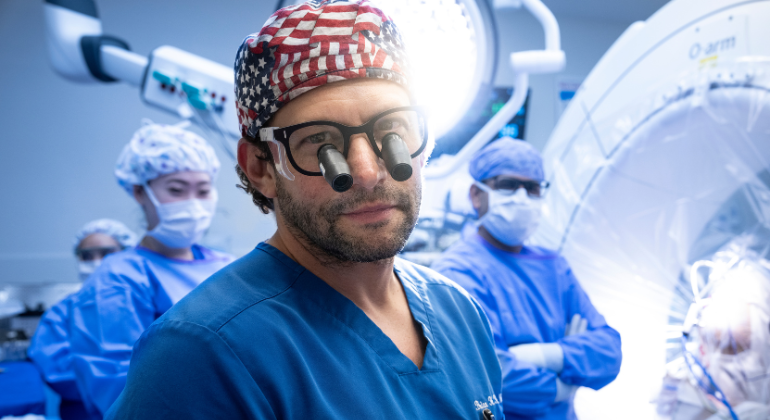Music Therapy Reduces Pain in Spine Surgery Patients
Music therapy has been found to decrease pain in patients recovering from spine surgery, compared to a control group of patients who received standard postoperative care alone. The study, published in The American Journal of Orthopedics, included a team of researchers from The Louis Armstrong Center for Music and Medicine and the Mount Sinai Department of Orthopaedics. About 70 percent of people in the United States experience at least one episode of back pain in their lifetime, and more than 5 million are temporarily or permanently disabled by spinal disorders.
"This study is unique in its quest to integrate music therapy in medicine to treat post-surgical pain" said John Mondanaro, the study's lead author and Clinical Director of The Louis Armstrong Department of Music Therapy. “Postoperative spine patients are at major risk for pain management challenges.”
Visual analog scale (VAS) pain ratings were collected before and after music therapy in the experimental group and within the same time period in the control group. In the control group, VAS pain levels increased slightly, from 5.20 to 5.87. In the experimental group, however, VAS pain levels decreased by more than one point, from 6.20 to 5.09.
“The degree of change in the music group is notable for having been achieved by non-pharmacologic means with little chance of adverse effects,” said Joanne Loewy, DA, co-author of the study and Director of The Louis Armstrong Center for Music and Medicine. “Pain is subjective and personal, and warrants an individualized approach to care. Certified, licensed music therapists are able to tailor treatment to each patient’s musical preferences and meet their pain level.”
Music therapists from the Louis Armstrong Center provided treatment options to each patient, including patient-preferred, live music that supported tension release/relaxation and joint singing and/or rhythmic drumming. Breathwork and visualization techniques were also offered.
Postoperative pain treatment, which is primarily pharmacologic, is a critical component of recovery, particularly during the immediate postoperative period, when pain and anxiety are prominently increased. For this study, researchers provided 30 spine surgery patients with a 30-minute music therapy session within 72 hours after surgery in addition to standard care. Another 30 spine surgery patients received standard postoperative care without music therapy. The 60 patients ranged in age from 40 to 55 years and underwent anterior, posterior, or anterior-posterior spinal fusion.
About the Louis Armstrong Center for Music & Medicine
The Louis Armstrong Center for Music & Medicine is made possible by a generous gift from the David B. Kriser Foundation and through the estate of John H. Slade, directed to Mount Sinai Beth Israel from the late hospital trustee Richard Netter, and with additional support from the Louis Armstrong Educational Foundation, the Helen Sawaya, Heather on Earth, and the Garry Dial Fund, among others. The Center is located at Mount Sinai Downton-Union Square, 10 Union Square East (between 14th and 15th Streets) in Manhattan.
Find more information about the Louis Armstrong Center for Music & Medicine at www.musicandmedicine.org or on Facebook, Twitter, and YouTube.
About the Mount Sinai Health System
Mount Sinai Health System is one of the largest academic medical systems in the New York metro area, with 48,000 employees working across seven hospitals, more than 400 outpatient practices, more than 600 research and clinical labs, a school of nursing, and a leading school of medicine and graduate education. Mount Sinai advances health for all people, everywhere, by taking on the most complex health care challenges of our time—discovering and applying new scientific learning and knowledge; developing safer, more effective treatments; educating the next generation of medical leaders and innovators; and supporting local communities by delivering high-quality care to all who need it.
Through the integration of its hospitals, labs, and schools, Mount Sinai offers comprehensive health care solutions from birth through geriatrics, leveraging innovative approaches such as artificial intelligence and informatics while keeping patients’ medical and emotional needs at the center of all treatment. The Health System includes approximately 9,000 primary and specialty care physicians and 10 free-standing joint-venture centers throughout the five boroughs of New York City, Westchester, Long Island, and Florida. Hospitals within the System are consistently ranked by Newsweek’s® “The World’s Best Smart Hospitals, Best in State Hospitals, World Best Hospitals and Best Specialty Hospitals” and by U.S. News & World Report's® “Best Hospitals” and “Best Children’s Hospitals.” The Mount Sinai Hospital is on the U.S. News & World Report® “Best Hospitals” Honor Roll for 2025-2026.
For more information, visit https://www.mountsinai.org or find Mount Sinai on Facebook, Instagram, LinkedIn, X, and YouTube.

Mount Sinai Health System to Roll Out Microsoft Dragon Copilot
Nov 05, 2025 View All Press Releases
NIH Awards $10 Million for the New York Regional Diabetes Research Center
Oct 23, 2025 View All Press Releases